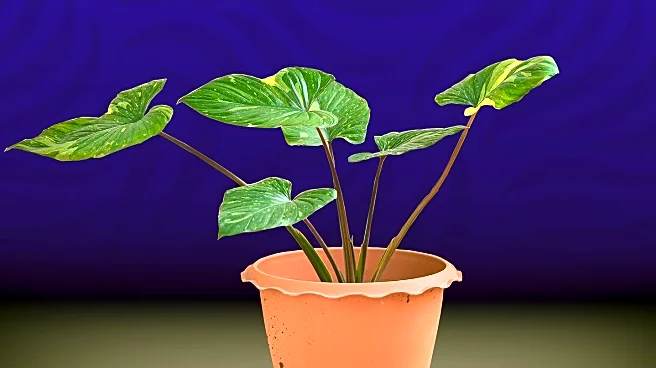What's Happening?
Houseplants are being utilized as natural insect repellents in kitchens, offering a chemical-free method to deter pests like ants and gnats. Certain plants, such as marigolds and herbs like basil and mint, release scents and oils that repel insects. These
plants not only enhance the aesthetic appeal of kitchens but also provide culinary benefits. The use of houseplants for pest control is gaining popularity as homeowners seek eco-friendly alternatives to traditional insect sprays.
Why It's Important?
The use of houseplants as insect repellents highlights a shift towards sustainable and natural pest management solutions. This approach reduces reliance on chemical insecticides, which can have harmful environmental and health effects. By integrating plants into pest control strategies, homeowners can create healthier living environments while also enjoying the added benefits of fresh herbs for cooking. This trend reflects a broader movement towards eco-conscious living and the incorporation of nature into everyday spaces.
What's Next?
As interest in natural pest control methods grows, more research may be conducted to identify additional plants with insect-repelling properties. This could lead to the development of new products and gardening techniques that enhance the effectiveness of houseplants in deterring pests. Homeowners may increasingly adopt these practices, influencing market demand for specific plant species and gardening supplies.
Beyond the Headlines
The cultural implications of using houseplants for pest control may extend to changes in gardening practices and home design. As people become more aware of the benefits of integrating nature into their living spaces, there may be a shift towards more sustainable and environmentally friendly home and garden designs.
















